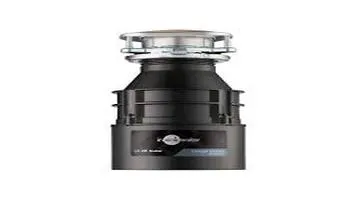Stella McCartney: A Review of Ethical Elegance
Stella McCartney is a renowned British fashion designer known for her commitment to sustainable and ethical fashion. Born on September 13, 1971, she is the daughter of former Beatle Paul McCartney and photographer Linda McCartney. Stella launched her own label in 2001 after honing her skills at Central Saint Martins and working as the creative director for Chloé. Her brand is celebrated for its chic, modern designs that eschew the use of leather and fur, reflecting her staunch advocacy for animal rights and environmental responsibility. McCartney's collections often feature innovative, eco-friendly materials and practices, positioning her as a pioneer in the sustainable fashion movement. Her work has garnered numerous accolades, and she continues to influence the industry with her forward-thinking approach.

Stella McCartney, the eponymous fashion brand founded by its namesake in 2001, has seamlessly blended luxury fashion with a rigorous ethical stance, creating a distinctive niche in an industry often criticized for its environmental and social impacts. Over the past two decades, McCartney has risen to prominence not only through her innovative designs but also through her unwavering commitment to sustainability and animal rights. This review examines the brand's design philosophy, ethical practices, and overall impact on the fashion world.
Design Philosophy and Aesthetic
Stella McCartney's design philosophy is a harmonious blend of modernity, femininity, and functionality. Her collections often feature clean lines, bold silhouettes, and a keen attention to detail. McCartney's aesthetic is versatile, appealing to a broad spectrum of women who seek both elegance and practicality in their wardrobes.
One of the standout aspects of McCartney's designs is her ability to create timeless pieces that transcend seasonal trends. Whether it's a sharply tailored blazer, a fluid evening gown, or a pair of chic sneakers, her creations exude a sense of effortless sophistication. McCartney's designs often incorporate innovative fabrics and techniques, further underscoring her commitment to pushing the boundaries of contemporary fashion.
Commitment to Sustainability
Perhaps the most distinguishing feature of Stella McCartney's brand is its profound commitment to sustainability. McCartney has been a vocal advocate for eco-friendly practices long before it became a mainstream concern within the fashion industry. Her brand eschews the use of leather, fur, and other animal-derived materials, opting instead for innovative alternatives such as vegetarian leather and sustainable wool.
In addition to her stance on animal rights, McCartney has implemented numerous practices aimed at reducing the environmental impact of her operations. The brand employs organic cotton, recycled materials, and low-impact dyes in its collections. McCartney has also partnered with organizations like the Ethical Trading Initiative and the Forest Stewardship Council to ensure that her supply chain adheres to the highest ethical standards.
One of the most notable initiatives is the Clevercare campaign, which educates consumers on how to extend the life of their garments through proper care. This initiative not only underscores McCartney's commitment to sustainability but also empowers consumers to make more environmentally conscious choices.
Innovation and Collaboration
Stella McCartney's innovative spirit is evident in her numerous collaborations and partnerships. In 2018, she launched a collaboration with Adidas, blending her high-fashion sensibilities with the athletic brand's performance expertise. The result was a line of sportswear that was not only stylish but also sustainable, featuring materials like recycled polyester and organic cotton.
Another groundbreaking collaboration was with Bolt Threads, a biotech company specializing in sustainable materials. Together, they developed Mylo, a leather alternative derived from mycelium, the root structure of mushrooms. This partnership marked a significant step forward in the quest for sustainable materials that can rival the aesthetics and functionality of traditional leather.
Impact and Legacy
Stella McCartney's influence on the fashion industry cannot be overstated. She has not only set a new standard for ethical luxury but has also inspired countless other designers and brands to adopt more sustainable practices. McCartney's success demonstrates that it is possible to create a profitable, high-end fashion brand without compromising on ethical values.
Her impact extends beyond the realm of fashion. McCartney has used her platform to advocate for broader environmental and social issues, from ocean conservation to labor rights. Her outspoken stance on these issues has helped to raise awareness and drive change, both within and outside the fashion industry.
Critiques and Challenges
Despite her many achievements, McCartney's brand is not without its critiques. Some argue that the high price point of her collections makes them inaccessible to the average consumer, limiting the broader impact of her sustainability message. Others point out that while her brand's practices are commendable, the fashion industry as a whole still has a long way to go in terms of achieving true sustainability.
Additionally, as with any pioneering brand, McCartney faces the ongoing challenge of maintaining her ethical standards while scaling her business. As the brand continues to grow, it will be crucial to ensure that its sustainability commitments are upheld across all aspects of its operations.
Conclusion
In summary, Stella McCartney is a trailblazer in the fashion industry, seamlessly blending aesthetic innovation with ethical integrity. Her brand stands as a testament to the possibility of achieving luxury without compromise, setting a new standard for what modern fashion can and should be. While challenges remain, McCartney's influence continues to drive the industry toward a more sustainable and responsible future. For those who value both style and substance, Stella McCartney offers a compelling vision of what fashion can achieve when guided by a commitment to ethical principles.
Related Posts

A Comprehensive Review of Stainless Steel Straws: A Sustainable and Stylish Alternative

Embracing the Art of Organizing and Decluttering: A Transformative Journey

Whirlpool Garbage Disposal Unit: A Comprehensive Review



